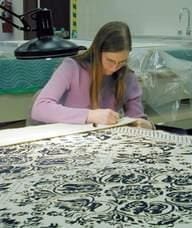Absence of Success stories of Textiles
[ by V.Y.Tamhane ]
Despite headline in the media about global concerns, one finds that sensitive industries like automobiles, tyres, real estate including cement and sugar make news of improved and better profitability. Even sensex bounces back when the intensity of the causes for the downfall is diminished. Then what is wrong with the textile industry ? Even during the worst period , the textile industry tries to retain its presence in the global market with comparatively smaller damage to the its export performance compared to the total exports. It is the traditionally low return on the capital employed which fails to attract investors. Obviously the rate of return in any industry must be higher than the normal general rate of interest.
The next question nagging the authorities is how to reverse the scenario.
Is the lackluster performance over the years the result of unstable policies, gross uncertainty or lack of consideration of special problems if the textile industry.
Some of the issue arresting the development and growth of the textile industry are:-
Government should evolve a viable scheme to promote textile industry so that it may occupy the position at the top of the world and emerge as a winner in the international race.
Consumers of cloth manufactured out of organic cotton insist on a dependable and reliable certificate by an international improved agency for its genuineness . This issue should be addressed satisfactorily.
Organic Cotton
There is a wave , particularly in developed countries for organic products. Consequently, there is a growing demand also for organic cotton. The industry is hoping for initiation of a durable, sustainable and viable policy to promote organic cotton . If the world economy starts looking up, the demand for organic cotton and the products made from it, that is, fabrics and garments will be tremendous in the years to come, with the rise in income and the spread of knowledge of benefits flowing from organic methods of production.
Durable sustainable and viable policy should be adopted for development of organic cotton in the country. Textile industry is on the verge to spring from the sense of despondency. All that it requires is a fair, reasonable and friendly package of measures. The feelers so far received have create atmosphere of industry- friendly policy and multiplied the enthusiasm of the industry.
- A long term policy is needed for upgradation of technology in the textile industry. As a result of wrong policies adopted over a long has scrapped the intrinsic strength of the organized sector; in view of the sterling contribution of the national economy, which is going to continue over a long period. Since the final product meets the prime necessity of human beings, Government should not hesitate to support the textile industry, which is labour intensive, consumer of major agricultural produce and earner of large foreign exchange. While the micro, small and medium enterprises in the textile sector also deserve special consideration the organized spinning industry should not be neglected on the spacious ground that it is over-modernized, which is not correct for two reasons. Technology upgradation has not touched a large segment of the spinning industry. Further, modernization is a continuous process and even modernized mills require further modernization after 7/8 years have elapsed, since the earlier modernization programme
- Organic farming of cotton will turn out to be a money spinner in the days to come. Financial help is required for organic farming so that its price is affordable.
- Competition from e-commerce companies cannot be underestimated. There should be a balanced taxation policy, so that no segment gets undue support.
- Prices of man-made fibres manufactured domestically are ot of alignment with the international market. Hence, manufacturers of man-made fibres rush to demand the imposition of anti dumping duties. While all segments must grow including man-made fibres, the best way to promote man-made fibres is to increase its consumption so that higher production consequent on higher consumption would protect its profitability.
A viable scheme drawn in consultation with all stakeholders in this regard is overdue. This is arresting the legitimate growth of the textile industry.
- TUFS scheme for micro, small and medium industries should be so designed that such units will avail of the same.
- Power, which used to account for 4/5 percent of the total cost of textile production has now become so costly that it accounts for 12-15% . Hence, power should be made available at economic rates for this purpose and obsolete power generators , old grid for transmission and distribution of power should be modernized. Funds required for the purpose can be made available by issue of tax-free bonds by the State Corporations engaged in generation, transmission and distribution of power.
- Labour laws are archaic and require a hard look.
This is not the best of the time for the textile industry but it has the capacity to regain its pristine position in the international market. Obviously an industry which manufacturers items required to meet the basic need of humanity is bound to turn the corner on the strength of an industry-friendly policy package.
……………………………………………… X ………………………………………………………………….
These are personal views of the author ]

